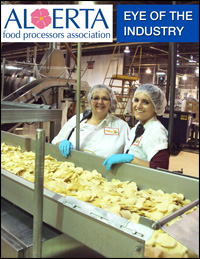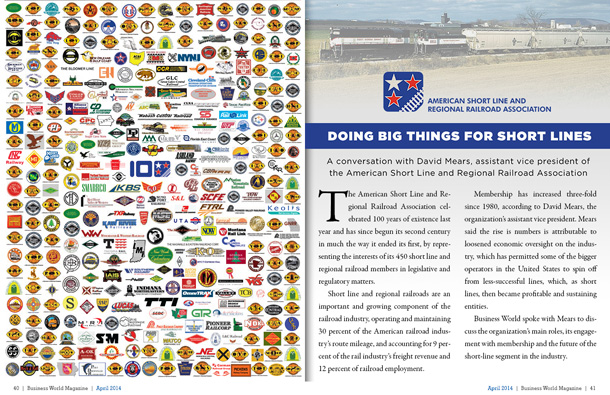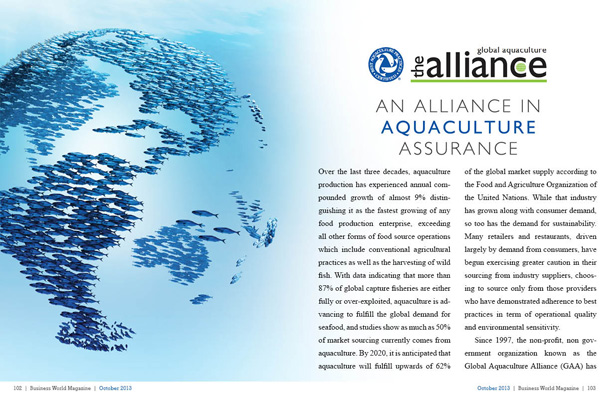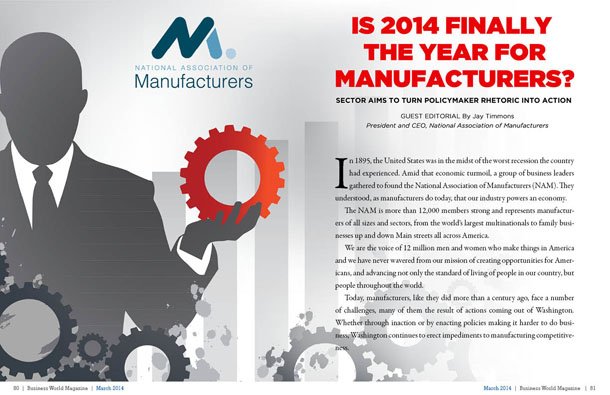

Eye of the industry
The Alberta Food Processors Association (AFPA) is a non-profit organisation that represents all segments of the food and beverage industry including growers, processors, retailers, foodservice buyers and service suppliers. The association exists to help its members and the industry as a whole prosper and grow. They accomplish this by offering training and education, providing valuable networking opportunities, as well as industry knowledge and leadership.
The AFPA began this mission in 1974, when it was founded by the provincial government of Alberta as an avenue to better promote Alberta food products to Albertans. “It has evolved over time to a significantly different structure and organisation in keeping with the changing world,†says Ted Johnston, CEO of the association. “Today, the focus of the AFPA is on assisting its members in their battle to survive and succeed in the food processing industry in Canada, as well as outside our borders.â€
The association has 250 manufacturing members and 120 associate members – companies who provide goods and services to the industry. The AFPA represents these members with various levels of the government. They keep a close eye on regulations and issues that are common to the whole industry such as those concerning food safety, workplace health and safety, the environment, and energy.
Inequality in government regulations is actually one of the AFPA’s chief causes. “Regulations are a good thing when they’re applied equally and fairly across the board. And that doesn’t happen in Canada, or the United States either,†explains Johnston. “Domestic manufacturers are held to a much higher product standard than imported product is. One of our key roles is definitely keeping legislators feet to the fire, and making sure they get that playing field levelled. Nobody minds competing as long as it’s fair.â€
Working with the government – as well as keeping an eye on them – is one of the AFPA’s key roles in general. “The most valuable thing we offer to members is our watchdog function,†Johnston reiterates. “We work closely with the various departments in each of the areas we’re involved.†A good example of the association’s value in this arena would be the partnership program they are engaged in with the Workers Compensation Board (WCB). Under that program, companies can develop workplace safety plans, and when those plans are approved and implemented, they earn discounts on their WCB premium rates. This is very advantageous for AFPA members – their jobs are often highly manual, and involve a high labour component, so those WCB premiums can be significant.
“When companies can get deductions in that, it gives their business a huge positive impact on the bottom line,†Johnston explains. The AFPA, as the certifying partner of that program, trains their members on how to best develop those programs and earn those discounts.
For the past three years Johnston has worked with the federal government as the industry co-chair of the working group of the Food Processing Industry Roundtable for Agriculture Canada. In that role, he and the association have been working alongside the government on a course of action that will lead the industry to a more profitable future. “We have been directly involved in the development of the government action plan to address the competitiveness issues for food processing in Canada,†Johnston says.
Getting that action plan right is important, Johnston explains, because as of now the food processing industry is actually shrinking. “This industry is the largest manufacturing industry in Canada,†he says.
“We are losing it. The industry is slipping away, unfortunately at a fairly rapid pace.†In the span of a few years, it has gone from being a 93 billion dollar industry to being an 89 billion dollar one. By enacting an effective industry strategy in cooperation with the government, Johnston hopes to see that trend reversed.
Another important function of the AFPA is the assistance and training they provide their members in food safety. “This industry is one of the most highly regulated industries anywhere in the world, and our members must be compliant with the various food safety standards,†explains Johnston. These standards can differ depending on a number of factors, such as who the customers are, or if the facility is federally registered or not. The AFPA assists their members with ensuring that they are prepared for safety audits when they come.
In addition, the association has a social component. They have an annual meeting that is attended by their members and representatives of government, and every second year they conduct a convention and trade show for the meat industry. The convention is primarily focused on the smaller operators, and is very highly attended. “That has an educational component as well as a large networking component,†Johnston says. “Our members get a chance talk to each other and exchange a lot of best practice information.â€
Moving forward, Johnston says the AFPA will continue to do the same thing it does today – which is support the industry. It is the industry itself that he would like to see change, and hopefully realize its full potential. “In Canada, we have one of the largest agricultural bases in the world, and we have 22 per cent of the world’s fresh water,†he says. “We can’t seem to translate that into adding value here at home and becoming a significant factor in the export marketplace for value added food products.†A few years ago, Canada was the number three exporter of value added food products in the world. Today they are number nine. Johnston wants to see Canada at least reclaim its bronze medal position. “And with the resources that we have available to us, it should be Canada’s policy that we should be higher even than that.â€







